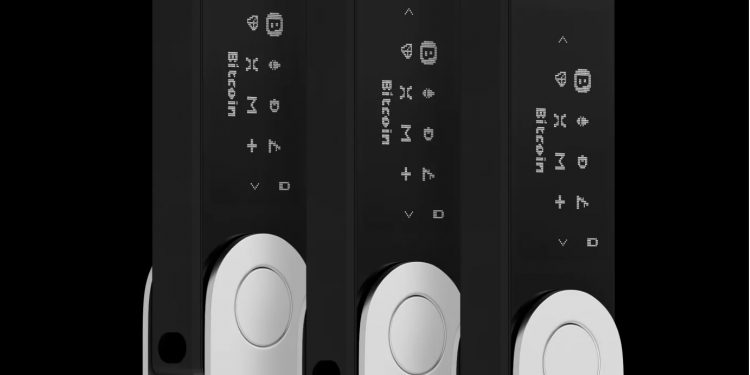Ledger, a prominent hardware wallet provider in the cryptocurrency space, currently finds itself wrapped at the center of controversy with the introduction of its Ledger Recover firmware update. The update, aimed at offering users an over-the-air backup solution for their seed phrases, drew significant criticism from the crypto community. Co-founder and former CEO of Ledger, Éric Larchevêque, responded to the backlash, addressing concerns and shedding light on the security model.
A Shift in Perspective
The Ledger Recover update allows users to opt-in for third-party entities to securely store their encrypted recovery phrase fragments. While this introduced an additional layer of convenience for users, it clashed with the expectations of some who viewed Ledger as a fully trustless service for safeguarding their cryptocurrencies.
The introduction of external parties in the backup process raised questions about potential security vulnerabilities.
Addressing Trust and Security
Larchevêque emphasized in a lengthy Reddit post that Ledger was never intended to be a completely trustless solution. Trust in the hardware wallet manufacturer is essential for its proper usage. He acknowledged that Ledger’s security model required a certain level of trust on the part of the user.
The company co-founder further stated that the Recover firmware update did not compromise the overall security of the hardware wallet and assured users that there was no backdoor present. He maintained that Ledger remained a safe option for storing cryptocurrencies.
Communication Challenges
Larchevêque acknowledged that the controversy surrounding the Ledger Recover update highlighted a communication gap during his tenure as CEO. He expressed regret for not being more persistent in explaining the security model to users.
However, he also noted the challenges of garnering attention and interest from users who often did not prioritize security concerns until such controversies arose. His comments indicate a desire for users to understand the underlying security measures that make Ledger a trusted solution.
Alternative Suggestions
Some users proposed the idea of having two separate firmware versions to alleviate concerns about potential backdoors. However, Larchevêque dismissed this suggestion, stating that it would not address the core issues.
The former CEO believed it was unnecessary and would only create confusion. Instead, he emphasized the importance of understanding and trusting Ledger’s overall security model, comparing the process of entrusting the company with seed phrase sharding to trusting them with transaction signing.
Competitor Response
As the Ledger controversy unfolded, a rival hardware wallet provider, GridPlus, seized the opportunity to differentiate itself by announcing plans to open-source its device firmware in the near future. It said that aims to enhance transparency and regain user trust by making their firmware accessible to scrutiny. This move reflects the growing importance of transparency and accountability within the cryptocurrency hardware wallet industry.
Final Thoughts
The introduction of the Ledger Recover firmware update surely faced significant backlash from the crypto community. However, the company’s co-founder addressed the concerns head-on, emphasizing the necessity of trust in their security model. Despite the controversy, he reassured users that Ledger remains a secure option for storing cryptocurrencies, debunking claims of any backdoor or malicious intent.
The incident serves as a reminder of the evolving expectations of users in the cryptocurrency space and the need for effective communication and transparency from industry leaders, especially when rolling out crucial updates to their products and services.










